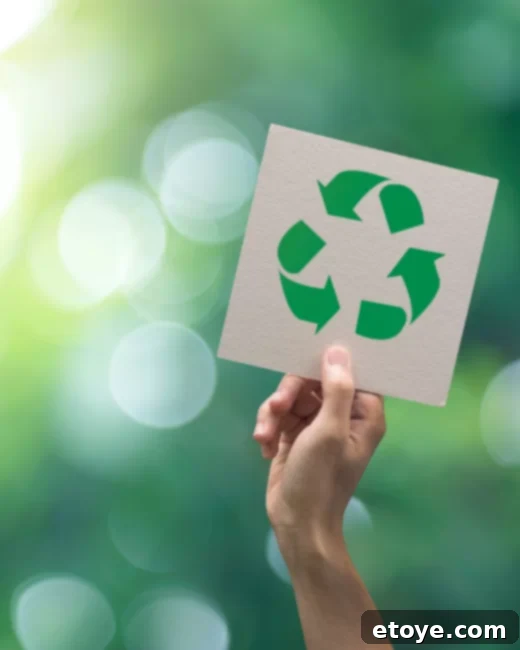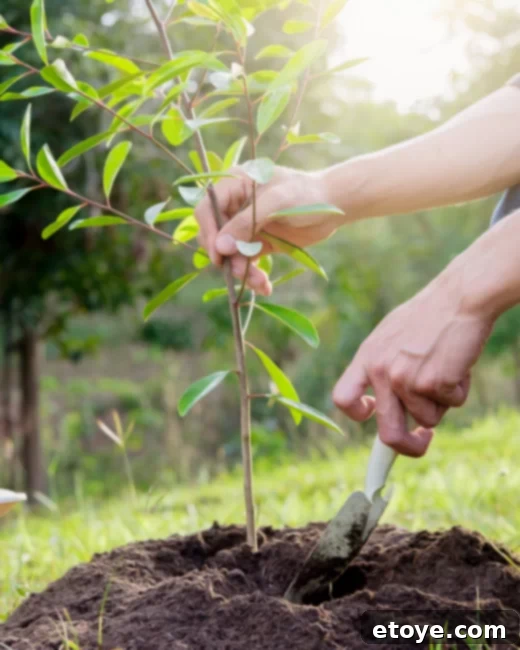Welcome to a special edition celebrating our planet! While Earth Day might have officially passed, the spirit of environmental stewardship continues. We’re excited to share insights into sustainable living and introduce a collection of eco-friendly products designed to help you reduce waste and embrace a greener lifestyle. Join us in making conscious choices that contribute to a healthier planet, not just for a week, but every single day.

Transform Your Home: Practical Steps to Being More Eco-Conscious
Adopting an eco-conscious lifestyle doesn’t require drastic changes overnight. Instead, it’s about making small, consistent adjustments that collectively lead to a significant positive impact. Here are actionable strategies to help you cultivate a more sustainable home environment and contribute to a healthier planet.
1. Embrace the Power of Reduce, Reuse, Recycle

The ‘three Rs’ are the cornerstone of environmental responsibility, offering a simple yet powerful framework for reducing your ecological footprint. Integrating these principles into your daily routine is one of the most effective ways to contribute to sustainability.
Reduce Your Consumption
Reducing is arguably the most critical ‘R’ because it tackles the problem at its source: overconsumption. Before making a purchase, ask yourself if you truly need the item. Opt for durable, long-lasting products instead of single-use or disposable alternatives. Choose items with minimal packaging or buy in bulk to lessen waste. Being a mindful consumer means investing in quality over quantity, which not only benefits the environment but often saves money in the long run. Consider borrowing, renting, or sharing items you don’t use frequently, such as tools or party supplies, rather than buying them new.
Reuse and Repurpose Creatively
Extending the life of products prevents them from ending up in landfills prematurely. Beyond simply using reusable shopping bags and water bottles, think creatively about how you can reuse items. Glass jars can be repurposed for food storage, organizing craft supplies, or as decorative vases. Old clothing can be transformed into cleaning rags or upcycled into new fashion statements. Donating unwanted items to thrift stores or selling them online gives them a second life and supports a circular economy. Repairing broken appliances or furniture instead of replacing them also falls under this crucial category, reducing demand for new manufacturing.
Recycle Responsibly
Recycling ensures that materials like plastics, paper, glass, and metals can be processed and turned into new products, conserving natural resources and reducing pollution. Set up a clear and convenient recycling system in your home – a dedicated bin or paper bag in your kitchen makes it easy to separate recyclables. Familiarize yourself with your local recycling guidelines, as acceptable materials can vary. Common recyclables include plastic bottles and containers (check numbers 1-7), aluminum cans, clean aluminum foil, cardboard, junk mail, newspapers, magazines, and glass bottles and jars. Always ensure items are clean and dry before recycling to avoid contaminating the batch and rendering it unrecyclable.
2. Embrace Chemical-Free Cleaning Solutions
The cleaning products we use in our homes often contain harsh chemicals that, once flushed down drains, enter our waterways and pose significant threats to aquatic ecosystems and human health. Making the switch to chemical-free cleaners is a vital step toward a healthier home and a cleaner planet.
Many conventional cleaning agents contain phosphates, chlorine, ammonia, and artificial fragrances, all of which can be toxic. When these substances reach rivers, lakes, and oceans, they contribute to water pollution, harming marine life and disrupting delicate ecological balances. Over time, the accumulation of these chemicals makes water treatment and purification processes more complex and costly. Opting for non-toxic, biodegradable cleaning products ensures that your daily chores don’t come at the expense of environmental health. Look for products with eco-labels or certifications, indicating they meet stringent environmental standards.
Even better, consider making your own natural cleaners using common household ingredients like white vinegar, baking soda, and lemon juice. Vinegar is a powerful disinfectant and deodorizer, baking soda acts as a gentle abrasive and odor absorber, and lemon juice provides a natural scent and additional cleaning power. These DIY solutions are not only effective and budget-friendly but also completely safe for your family and the environment. Furthermore, many non-toxic cleaning brands are also cruelty-free, meaning their products and ingredients are not tested on animals, aligning with a broader ethical consumption philosophy.
3. Contribute Through Volunteering

Direct action is incredibly powerful, and volunteering offers a tangible way to make a difference in your community and for the environment. Joining forces with others amplifies your impact and fosters a sense of collective responsibility.
There’s a wide array of environmental volunteer opportunities available, catering to various interests and skill sets. You could participate in local park clean-ups, helping to remove litter and maintain natural spaces, or join a beach or river cleanup to protect aquatic habitats. Many organizations focus on building community gardens, planting trees in urban areas, or restoring native habitats by removing invasive species. For those passionate about wildlife, volunteering at an animal rehabilitation center offers the chance to directly care for injured or orphaned animals and contribute to their recovery and release. Protecting public lands, from national parks to local green spaces, ensures these beautiful and vital ecosystems remain intact for future generations. Look for local environmental groups, nature centers, or conservation societies to find opportunities that resonate with you. Every hour contributed makes a real difference.
4. Plant a Tree for a Greener Future

Planting a tree is one of the simplest yet most profoundly impactful actions you can take for the environment. Trees are natural powerhouses, providing a myriad of ecological benefits that are crucial for the health of our planet and all its inhabitants.
Trees are vital for combating climate change by absorbing carbon dioxide from the atmosphere and releasing life-giving oxygen. A single mature tree can sequester tons of CO2 over its lifetime. Beyond carbon capture, trees filter air pollutants, improving air quality and reducing respiratory illnesses. They play a critical role in local ecosystems by providing food and shelter for wildlife, supporting biodiversity from insects to birds and small mammals. Trees also help regulate the water cycle, preventing soil erosion, reducing stormwater runoff, and contributing to groundwater replenishment. In urban environments, trees provide essential shade, reducing the need for air conditioning and mitigating the urban heat island effect. Their presence also enhances mental well-being, providing calming green spaces for communities. Whether you plant one in your backyard, participate in a community tree-planting event, or support organizations dedicated to reforestation, every new tree contributes significantly to a healthier, more sustainable world.
5. Empower Yourself Through Education

Knowledge is a powerful tool in the fight for environmental sustainability. Understanding the challenges and solutions allows you to make informed decisions and inspire others. The journey towards an eco-conscious lifestyle begins with educating yourself.
Take the initiative to learn about environmental issues such as climate change, plastic pollution, deforestation, and biodiversity loss, as well as the innovative solutions being developed. Explore reputable sources like scientific journals, environmental organizations, documentaries, books, and educational websites. The more you learn, the better equipped you’ll be to make impactful choices in your daily life, from selecting sustainable products to conserving resources. Furthermore, this knowledge empowers you to engage in meaningful conversations, share insights with friends and family, and advocate for environmental policies. Being environmentally conscious extends beyond your home; it’s about integrating sustainable thinking into all aspects of your life and encouraging a ripple effect of awareness and action throughout your community. Continuous learning ensures you stay updated on best practices and emerging environmental solutions.
6. Practice Water Conservation in Your Daily Life
Water is a finite and precious resource, and conserving it at home is a simple yet crucial step towards sustainability. Small changes in habits can lead to significant water savings and alleviate stress on local water supplies.
Start by taking shorter showers and turning off the tap while brushing your teeth or washing dishes. Install low-flow showerheads and toilets to drastically reduce water usage without sacrificing efficiency. Regularly check for and fix leaky faucets and pipes, as even a small drip can waste thousands of gallons annually. Outdoors, practice smart watering for your garden: water early in the morning or late in the evening to minimize evaporation, and consider installing a drip irrigation system. Collecting rainwater in barrels for garden use is another excellent way to conserve potable water. These mindful practices contribute to preserving this essential resource for future generations and support local ecosystems.
7. Boost Energy Efficiency at Home
Reducing your energy consumption not only lowers your utility bills but also decreases your carbon footprint by minimizing reliance on fossil fuels. Making your home more energy-efficient is a cornerstone of eco-conscious living.
Switch to energy-efficient LED lighting, which consumes significantly less electricity and lasts much longer than traditional bulbs. Unplug electronics when they’re not in use to avoid “phantom load” – the power they draw even when turned off. Maximize natural light during the day and open windows for ventilation to reduce the need for artificial lighting and air conditioning. Ensure your home is well-insulated to maintain indoor temperatures, lessening the strain on heating and cooling systems. Consider investing in Energy Star-rated appliances when replacements are needed, as they are designed for optimal energy efficiency. Simple habits like air-drying laundry whenever possible also contribute to substantial energy savings.
8. Make Sustainable Food Choices
Our food choices have a profound impact on the environment, from resource consumption to carbon emissions. Adopting more sustainable eating habits can significantly reduce your ecological footprint and promote a healthier food system.
Prioritize buying local and seasonal produce, which reduces “food miles” and supports local farmers. Opt for organic foods whenever possible to minimize exposure to pesticides and support farming practices that are better for soil health and biodiversity. Consider incorporating more plant-based meals into your diet; reducing meat consumption, especially red meat, can dramatically lower your carbon footprint. Minimize food waste by planning meals, storing food properly, and composting scraps. Composting not only diverts waste from landfills but also enriches your garden soil. Understanding where your food comes from and choosing products with transparent, ethical sourcing can make a substantial difference.
Eco-Friendly Product Showcase: Tools for a Greener Home
Investing in sustainable products is an excellent way to support your eco-conscious journey. These items are designed to reduce waste, conserve resources, and offer effective, environmentally friendly alternatives to everyday essentials.
Funbiz Reusable Storage Bags
Say goodbye to single-use plastic baggies with Funbiz Reusable Storage Bags, a brilliant eco-friendly solution for your kitchen and beyond. These waterproof and durable bags are incredibly easy to open and close, making them perfect for packing lunches, snacks, or storing various household items. Their transparent design offers a quick and convenient glimpse at the contents inside, eliminating the need to rummage around. Maintenance is a breeze: simply handwash the bags in cold or room temperature water, then air dry them by placing them over a mug or cup. Designed to be stain and odor-resistant, these bags ensure your food stays fresh without retaining lingering smells, making them a sustainable and hygienic choice for reducing plastic waste.
Mrs. Meyer’s Clean Day Kitchen Essentials Set
Infuse your home with the delightful scents of a garden while embracing a commitment to the environment with Mrs. Meyer’s Clean Day Kitchen Essentials Set. Inspired by the beauty and freshness of nature, Mrs. Meyer’s products not only clean effectively but also encourage a deeper connection to the natural world. Each formula is crafted with plant-derived ingredients and essential oils, making them a gentler, more eco-conscious choice for your kitchen and home. The brand’s dedication extends beyond their products; they hold a genuine passion for environmental stewardship and believe in being a good neighbor, not just in their immediate community, but across the globe. By choosing Mrs. Meyer’s, you’re not just cleaning; you’re supporting a philosophy that values nature and sustainable living, inspiring you to plant flowers, plants, and trees and foster a vibrant, healthy environment.
Full Circle Dish Brush
Bring efficiency and eco-consciousness to your dishwashing routine with the Full Circle Dish Brush. Though small in stature, this sink-side workhorse delivers mighty results, effortlessly creating lush suds that make dish time not just easy, but perhaps even a little enjoyable. Crafted with sustainability in mind, this brush features a durable bamboo handle, a renewable resource known for its strength and rapid growth. The thoughtful design includes a ceramic base that not only springs into action as a functional component but also serves as a neat and hygienic storage solution for your counter. This keeps the bamboo brush elevated, allowing it to air dry properly and remain squeaky clean, preventing mildew and extending its lifespan. It’s an ideal choice for those seeking practical and sustainable tools for their kitchen.
Swedish Dishcloth Cellulose Sponge Cloths
Revolutionize your kitchen cleanup with our ECO-FRIENDLY Swedish Dishcloth Cellulose Sponge Cloths, the ultimate sustainable alternative to paper towels and traditional sponges. Crafted from a biodegradable blend of 70% cellulose and 30% all-natural cotton materials, these dishcloths are designed for repeated use, significantly reducing waste. Unlike typical cotton dishcloths, our reusable Swedish dishcloths boast superior absorbency, making quick work of spills and cleaning tasks. They are incredibly durable, soft to the touch, and remarkably easy to clean – simply toss them into the dishwasher or washing machine. With their long-lasting performance and commitment to sustainability, these Swedish washcloths are truly the best towel for an environmentally conscious kitchen, proving that effective cleaning doesn’t have to come at the planet’s expense.
